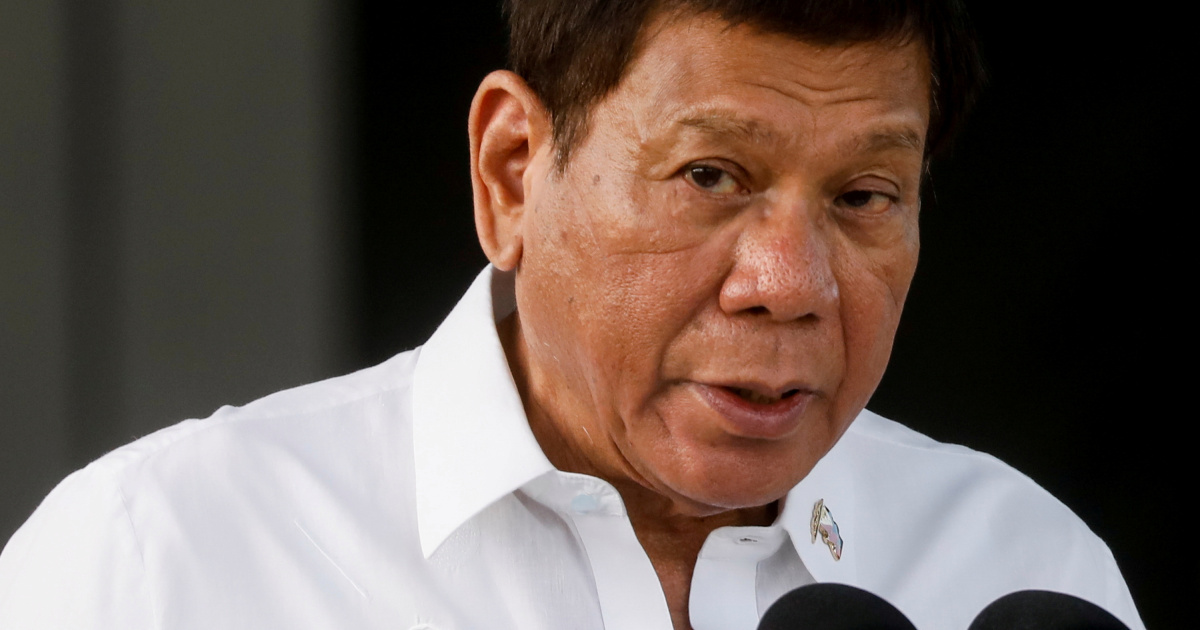Duterte bans Philippines cabinet from speaking on South China Sea
Gag order comes after key ministers criticised Beijing over the presence of Chinese vessels in the disputed waterway.
Rodrigo Duterte, the president of the Philippines, has barred his cabinet from publicly discussing the South China Sea dispute after key ministers rebuked Beijing over the presence of Chinese vessels in the contested waterway.
However, Duterte stressed on Tuesday that the gag order did not mean the Philippines was wavering in its defence of its sovereign rights.
Tensions between Manila and Beijing over the South China Sea – which China claims almost entirely – flared in March after hundreds of Chinese boats were spotted inside the Philippines’ Exclusive Economic Zone (EEZ) or the West Philippine Sea.
While Duterte has been reluctant to confront China over the issue, his foreign and defence secretaries have repeatedly criticised Beijing – including in an expletive-laden tweet – for its refusal to withdraw the ships from the disputed waters.
In a televised address late on Monday, Duterte said: “This is my order now to the cabinet, and to all and sundry talking for the government, to refrain from discussing the West Philippine Sea with anybody.”
“If we talk, we talk but just among us,” he said.
But the Philippine leader later clarified his order should not be construed as weakness and on Tuesday said maritime patrols must continue.
“Our agencies have been directed to do what they must and should to protect and defend our nation’s interest,” Duterte said in a statement. “We will not waver in our position.”
Beijing claims almost the entire South China Sea and has built military installations equipped with missiles on reefs in disputed areas, including within the Philippine EEZ, alongside a constant presence of coastguard and fishing vessels.
While China’s conduct has been a constant problem for Duterte, the Philippine president has refrained from criticising Beijing and instead praised its leadership, hoping to secure big investments.
But his approach has frustrated nationalists.
Chinese vessels, believed to be manned by Chinese maritime militia personnel, are seen in the Philippines’ EEZ on March 27, 2021 [File: Philippine Coast Guard/National Task Force-West Philippine Sea/Handout via Reuters] Earlier in May, Duterte’s Foreign Affairs Secretary Teodoro Locsin Jr took to Twitter to demand China leave the waterway.
“China, my friend, how politely can I put it? Let me see… O… GET THE F*** OUT,” Locsin wrote.
The foreign secretary’s online swearing prompted a rebuke from Beijing and he later apologised to his Chinese counterpart.
Presidential spokesman Harry Roque told reporters on Tuesday that Locsin was still allowed to address the issue in public, since it was part of his portfolio.
“The instruction of the president was clear. Only the secretary of foreign affairs and myself can speak on the issue now,” Roque said during a press briefing.
Analysts say the gag order could lessen tensions at the rhetorical level.
“It could be that President Duterte has realised that it’s high time for his administration to speak with one voice given the mixed signals,” said Aaron Jed Rabena of the Asia-Pacific Pathways to Progress, a Manila-based think-tank.
He told the Reuters news agency that the differing messages showed “a government that is incoherent”.











